About this guide

A member of staff or a carer can support you to read this guide. They will be able to answer any questions that you have.
About this guide
- This guide is for people who think they might have anxiety.
- It will tell you how you might feel.
- It will tell you what you can do to feel better.
- It will tell you where you can go to get help.
What is anxiety?

Anxiety is when we feel worried and tense.
Everyone feels like this sometimes. Most of the time the feeling of anxiety goes away.
Sometimes these thoughts and feelings can start to affect how you live.

Some people get anxiety worse than others and it can become a problem when it starts to affect how you live your life.
Anxiety is often a problem for people who are in prison.
How might I feel?

Anxiety is different for everyone.
Some people say anxiety makes them feel like this:
- When the cell door opens or closes I jump and feel worried.
- Being around lots of people makes me tense and sometimes I snap at people.
- When I am out on the landing my mind starts to race.
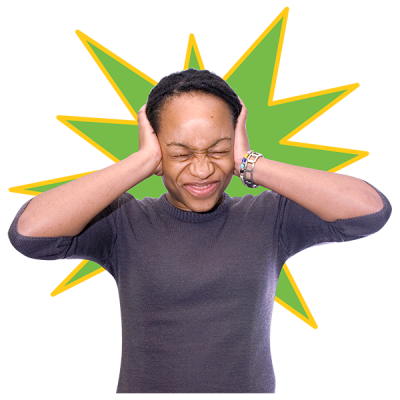
- I feel like I am going to lose control.
- I cannot cope!
- I’ve got to get out!

- I feel like I might have a heart attack.
- I feel I might faint!
If you have felt like this, you might have anxiety.

If you have anxiety you might feel these things:
- Nervous, worried or scared.
- Stressed, on edge or tense.
- Dizzy, panicky or just ‘strange’.
You might think differently:
- Worry more than usual.
- Your thoughts might jump from one thing to another.
- Think a lot about the worst things that could happen.

You might do different things:
- Walk up and down a lot.
- Start something and not finish it.
- Can’t relax or sit still.
- Be angry with people.
- Drink or smoke more.
- Eat more or less than normal.

Your body might feel different:
- Go numb or tingly.
- Feel breathless or that you can’t breathe properly.
- Heart beats faster.
- Stomach pains.
- Aching muscles.
- Sweating.
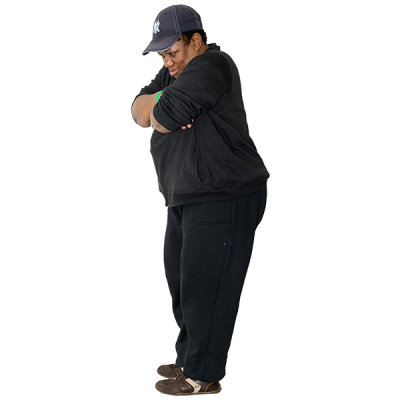
Anxiety feels scary.
And feeling scared can make you feel more anxiety!
Anxiety can feel awful, but there are things which make anxiety better.
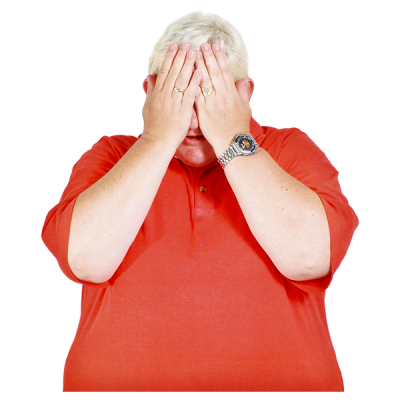
In this guide you can find about these things which help:
- Understanding anxiety
- Making your body feel better
- Changing the way you think
- Changing what you do when you feel anxiety
There are lots of things which you can do to feel better.
Understanding anxiety

- It helps if you find out why you have anxiety.
- You could keep a diary of the times you feel nervous or worried and then write or draw what you did to make yourself feel better.
- Think about the things that make you nervous or frightened. What makes you feel tense? Make a list or draw pictures.
- Look at your list and think about what it would take to make each thing better.
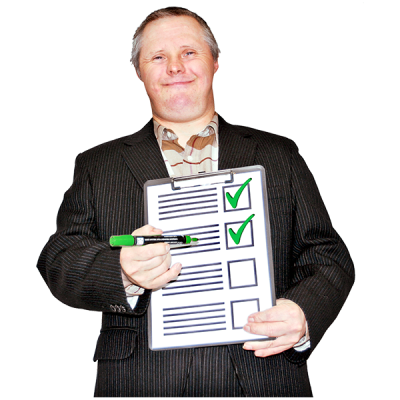
- Make a list of your ideas of how things could be better.
- You can use your list to start making things better.
- It often helps to talk things through with someone who you trust.
How to cope with stress

Being in prison can be stressful. It is important to try and keep our stress levels low.
- Try to work out what makes you stressed, then you can think about how to deal with the stress.
- Make sure you have time to do things you enjoy, like reading or listening to music.
- Try to get enough sleep.

- Try to eat a balanced diet. Eat fruit and vegetables when you can.
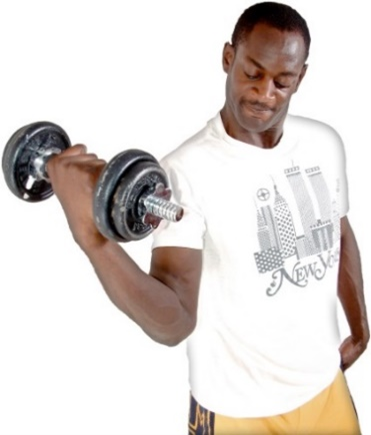
- Get exercise whenever you can. Ask to go to the gym if there is one, or do exercises in your cell.

- Try to relax. The library might have books or CDs that can help you do this.
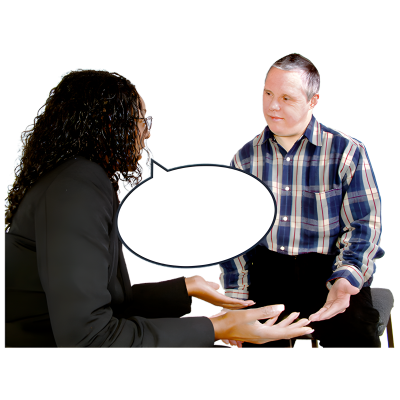
Talking to staff or someone you trust about your feelings can be helpful.
Making your body feel better
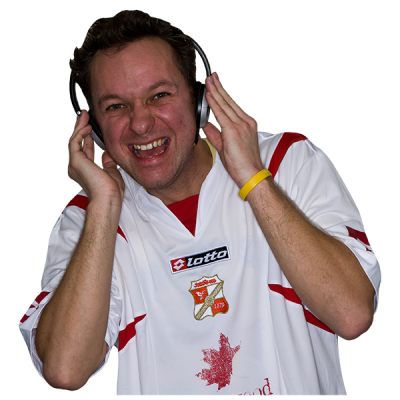
- Relaxing can be a good way to stop the feelings of anxiety. You could lie on your bed, or listen to your favourite music.
- Breathe slowly and deeply until the anxiety feelings start to go away. Breathing quickly can make you feel worse.
- If you find it hard to relax you can learn how to relax. Ask the nurse or doctor if they can help you to learn.

- There are CDs and books which explain how to relax. Ask for one at the library.
Changing the way you think
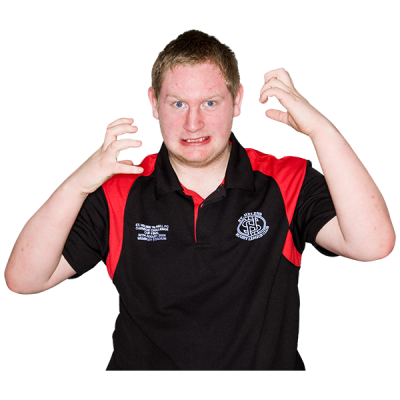
Lots of people have bad thoughts when they are nervous or worried. This can make the anxiety worse.
Try to challenge your negative thoughts. This means thinking about things in a different way to feel better.
Try writing down or drawing the thoughts you have when you are feeling anxious.
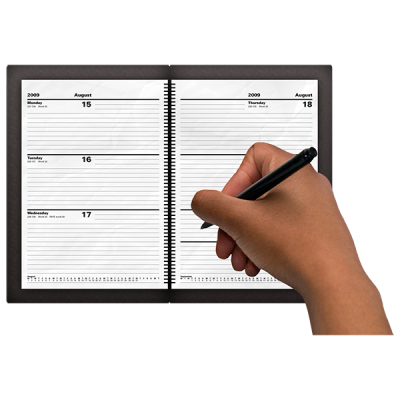
Once you know what you are thinking, it is easier to deal with how the thoughts make you feel. You could write down your anxious thoughts and write a positive
next to each one.

For example:
Anxious thought: I feel dizzy – I’m going to faint.
Positive thought: I have felt like this lots of times and never fainted. When I have fainted, I felt very different.
The more times you do this, the easier it gets.
Changing what you do when you feel anxiety

People try to avoid things which make them anxious. They get scared of doing these things. This makes the anxiety worse.
Try to work out what things you avoid. When you are feeling anxious, try to stay in the situation a bit longer than usual each time it happens. Eventually your anxiety will begin to calm down.

Some people do things to make them feel safe. Like holding onto something, lying down, or checking (checking if a switch is off for example.)
They can make you more anxious because you worry that the anxiety will get worse if you can’t do what you usually do to cope.
Try to stop doing these things little by little.

If you feel worried, try writing it down or talking to someone you trust. This can help you feel better.
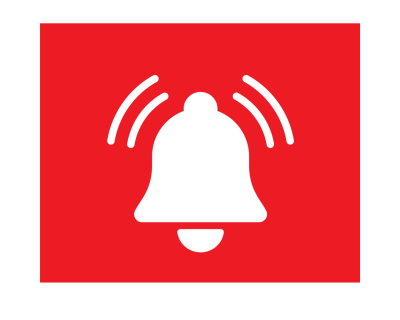
If you think you are in danger, tell someone you trust.
Where to get more help
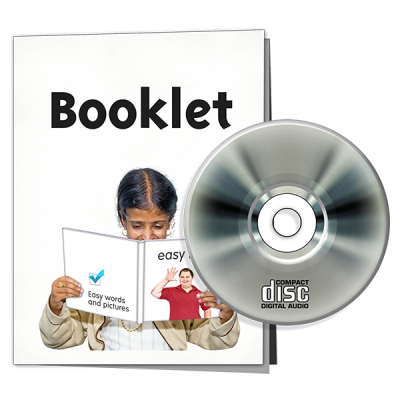
The library will have books and CDs which might help.
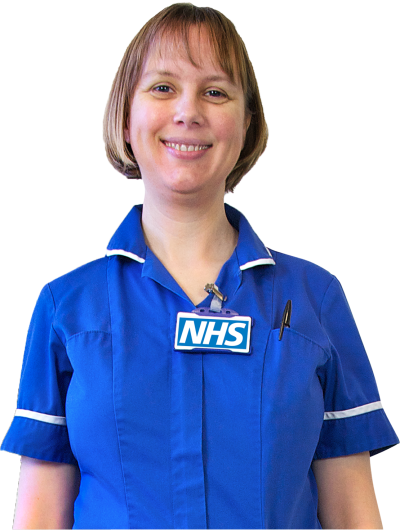
Ask to speak to a member of the Mental Health Team
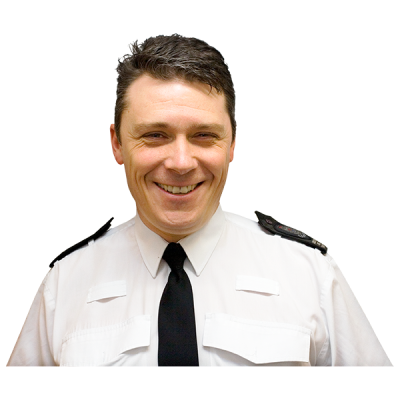
Prison staff will be able to help you.
There is a list of organisations at the end of this guide.
Some people who can help you

MIND
Telephone: 0300 123 3393
MIND helps people who have depression and other mental health problems.
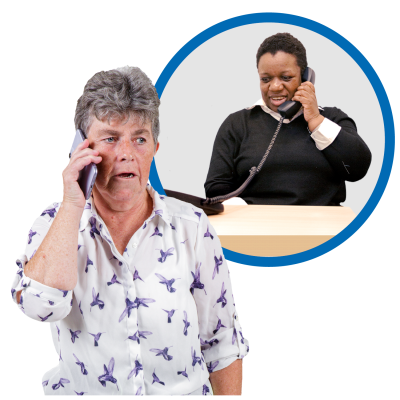
PACT – Prison Advice and Care Trust
Telephone: 0808 808 2003
PACT helps prisoners and their families.

Partners of Prisoners and Families Support Groups (POPS)
Telephone: 0161 702 1000
POPS helps families of prisoners.
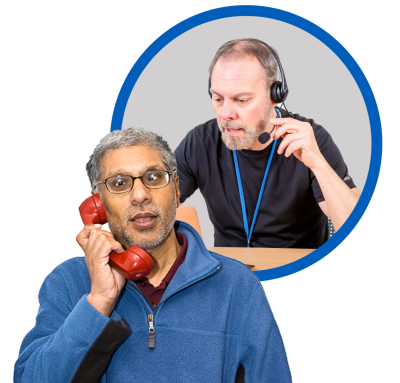
Prisoners Advice Service
Telephone: 0207 253 3323
PAS helps prisoners with their problems.
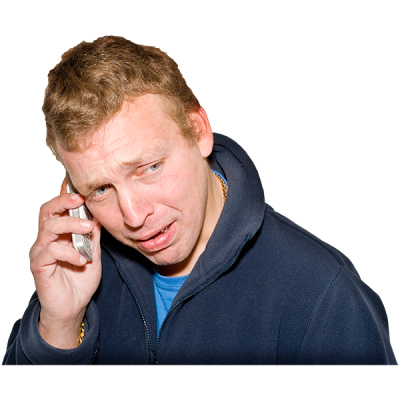
Samaritans
Telephone: 116 123
The Samaritans are a telephone helpline for people who are very unhappy or are thinking about hurting themselves. You can phone them to talk to someone. They won’t tell anybody what you say to them.
Acknowledgement

Easy Read version developed by:
- Skills for People, Telephone: 0191 281 8737
Skills for People is a registered charity no. 1069993 - Many thanks to prison listeners at HMP Northumberland who have contributed to the development of this guide
Adapted from Anxiety - A self help guide for people in prison written by Lorna Cameron and Dr Lesley Maunder www.
Published by the Patient Information Centre
2025 Copyright, Cumbria, Northumberland, Tyne and Wear NHS Foundation Trust
Ref, PIC/734/0525 May 2025 V4
Review date 2028
 Print or download as a PDF
Print or download as a PDF